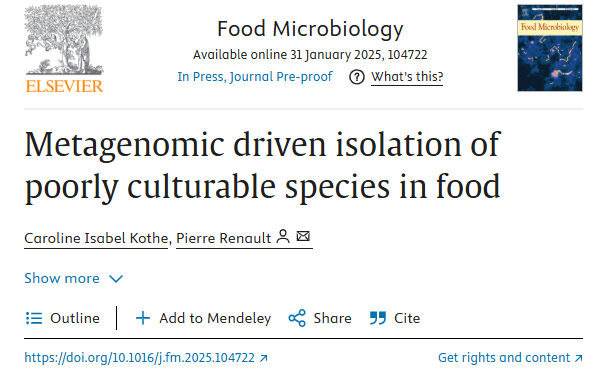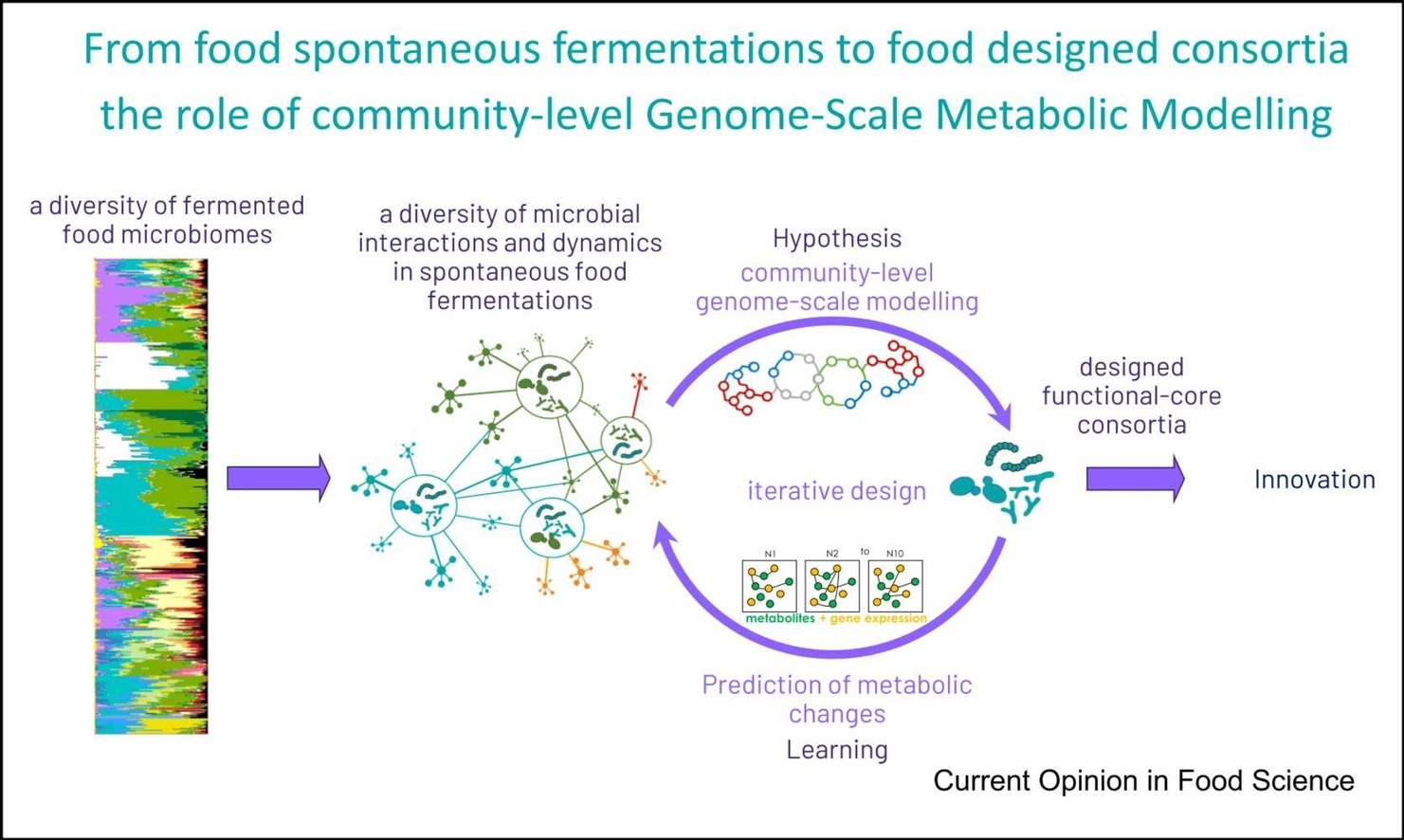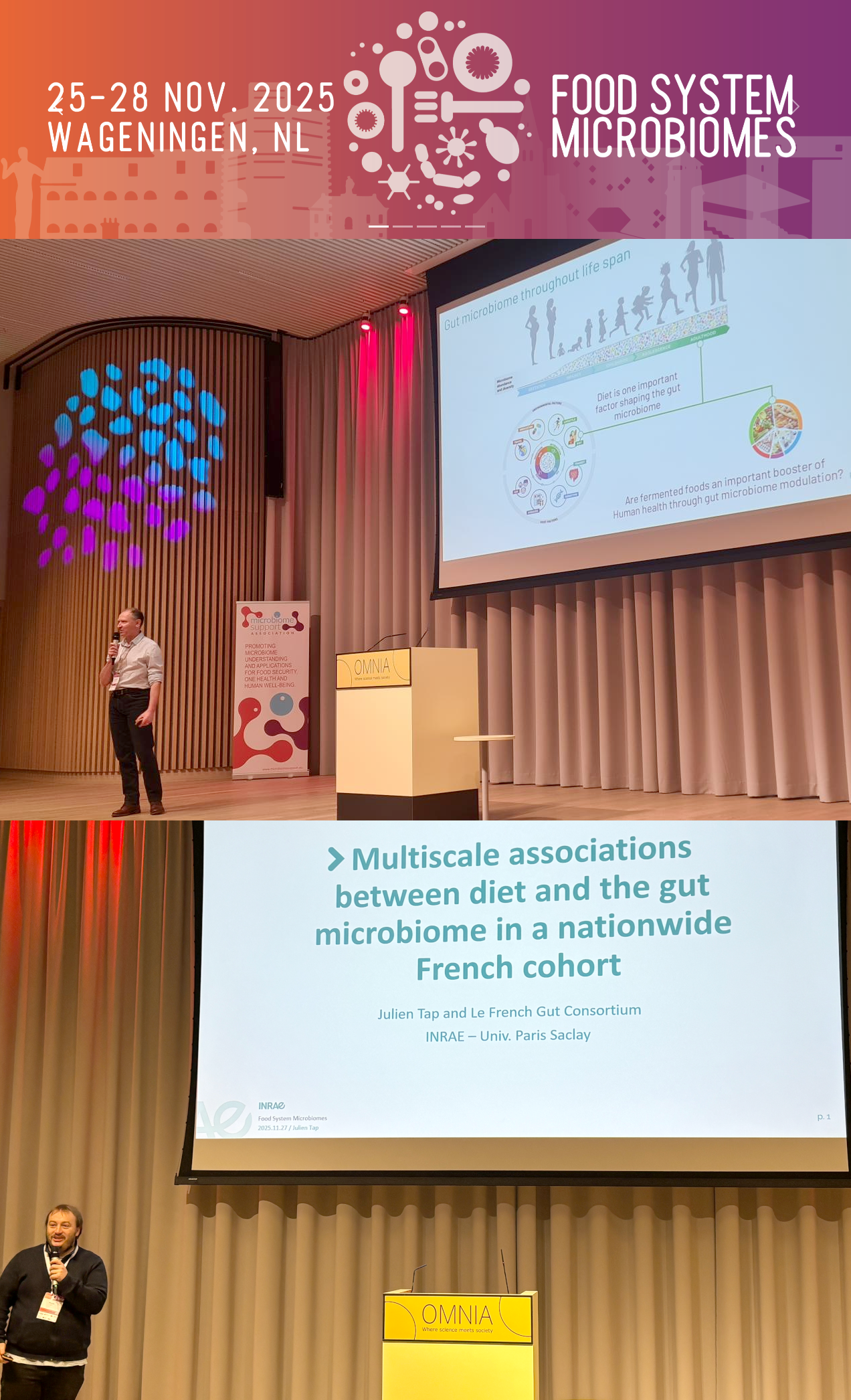Published: Feb 4, 2025 by FME Lab
A new article entitled “Metagenomic driven isolation of poorly culturable species in food” from Caroline and Pierre has been published in Food microbiology journal1.
This paper presents an easy-to-implement culturing strategy, supervised by metagenomic assemblies, that Caroline Kothe (PhD student in our lab at the time) initially developed to isolate all species present in food ecosystems, including as many subdominant and poorly culturable species as possible. We give here an example of application to cheese, but we have successfully used this approach in other food ecosystems such as water kefir, traditional Brazilian, Lebanese and African products, from which a number of undefined and/or poorly cultivable species have been isolated for further study (starters, safety…). This approach has been successfully transferred to teams around us, as well as in Africa and the Middle East, and we believe it could be useful more widely.

Highlights are:
- Easy-to-implement culturomic strategy supervised by metagenomic assembly.
- Proof of concept applied to two cheeses, targeting specific species.
- Recovery of 10 species, including two not previously reported in food.
-
Kothe et al. *Metagenomic driven isolation of poorly culturable species in food. Food Microbiology. 2025 ↩


